|
A product called horse-slips™
has recently been introduced to the equine hoof care market.
It is presented in extruded spirals of a one piece rubber
material (Fig 1) that has a thick ground surface with
a groove and a cuff to attach it to the outer hoof wall.
It is designed to fit around the perimeter of the hoof
wall and is attached to the hoof wall with an acrylic
composite.
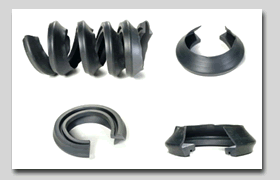
Fig.
1
Horse-slips
are generally used for horses not in work and not wearing
shoes. It allows the full physiology of the foot to be
used as in a barefoot horse while affording protection
to the ground surface of the foot. Numerous indications
for their use are with horses that become sore when left
barefoot, horses with poor consistency to the hoof wall
and flat soles, some cases of chronic laminitis, hoof
wall separations (WLD), post abscess and broodmares in
the late stage of pregnancy when they become sore. They
are easy to apply with a minimum of tools and equipment
needed. They are applied as follows: the hoof is trimmed
appropriately leaving the sole in place at the sole wall
junction (white line) to create a flat surface (Fig 2).
The outer hoof
wall is rasped around the whole perimeter for a height
of 1 inch (attachment of cuff).
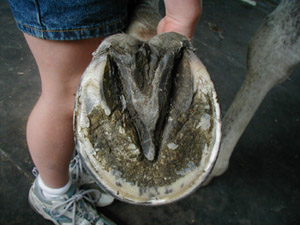
Fig.
2
The horse-slip
material is placed around the perimeter of the hoof and
cut at the desired length (Fig 3).

Fig.
3
The heels are cut
on an angle with a sharp blade to match the base of the
frog. (Fig. 4)
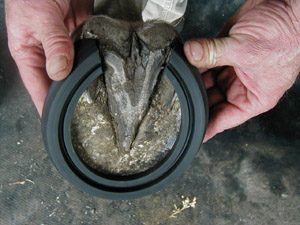
Fig.
4
2 ounces of an acrylic composite is placed
in the trough of the cuff (Fig 5, 6)
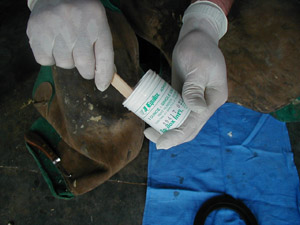
Fig.
5
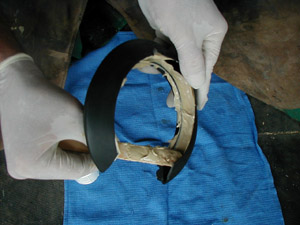
Fig.
6
The horse-slip is
placed around the perimeter of the foot, pressed tight
and the excess composite is smoothed out around the cuff
on the ground surface to insure a tight seal (Fig 7).
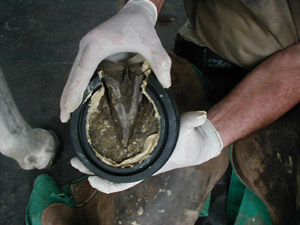
Fig.
7
The horse-slip is covered with plastic wrap (Fig. 8) and
vetwrap or 2in elasticon is applied around the cuff to
pull it tight against the foot and the foot is held up
for 2-3 minutes until the composite has cured.
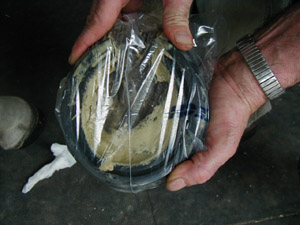
Fig
8
After the composite has cured, a rasp is
used to smooth the heels (Fig 9).
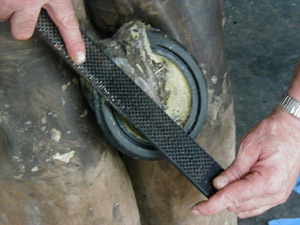
Fig
9
Completed procedure (Fig 10). I generally leave the horse
in a stall before turning back in the pasture. Moisture
from continuous turnout does not appear to affect the
adhesion to the hoof. I have used this product in Virginia
and Florida with no problem.
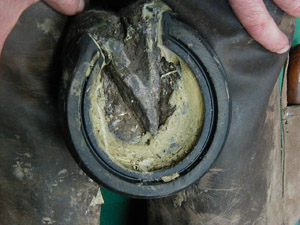
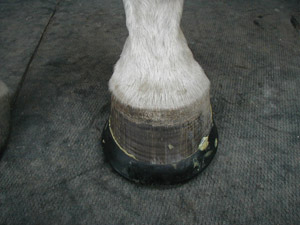
Fig.
10
The above is
for informational purposes only. Please note that I have
no financial interest in this company.
For more information, see www.ag-tek.com
|

